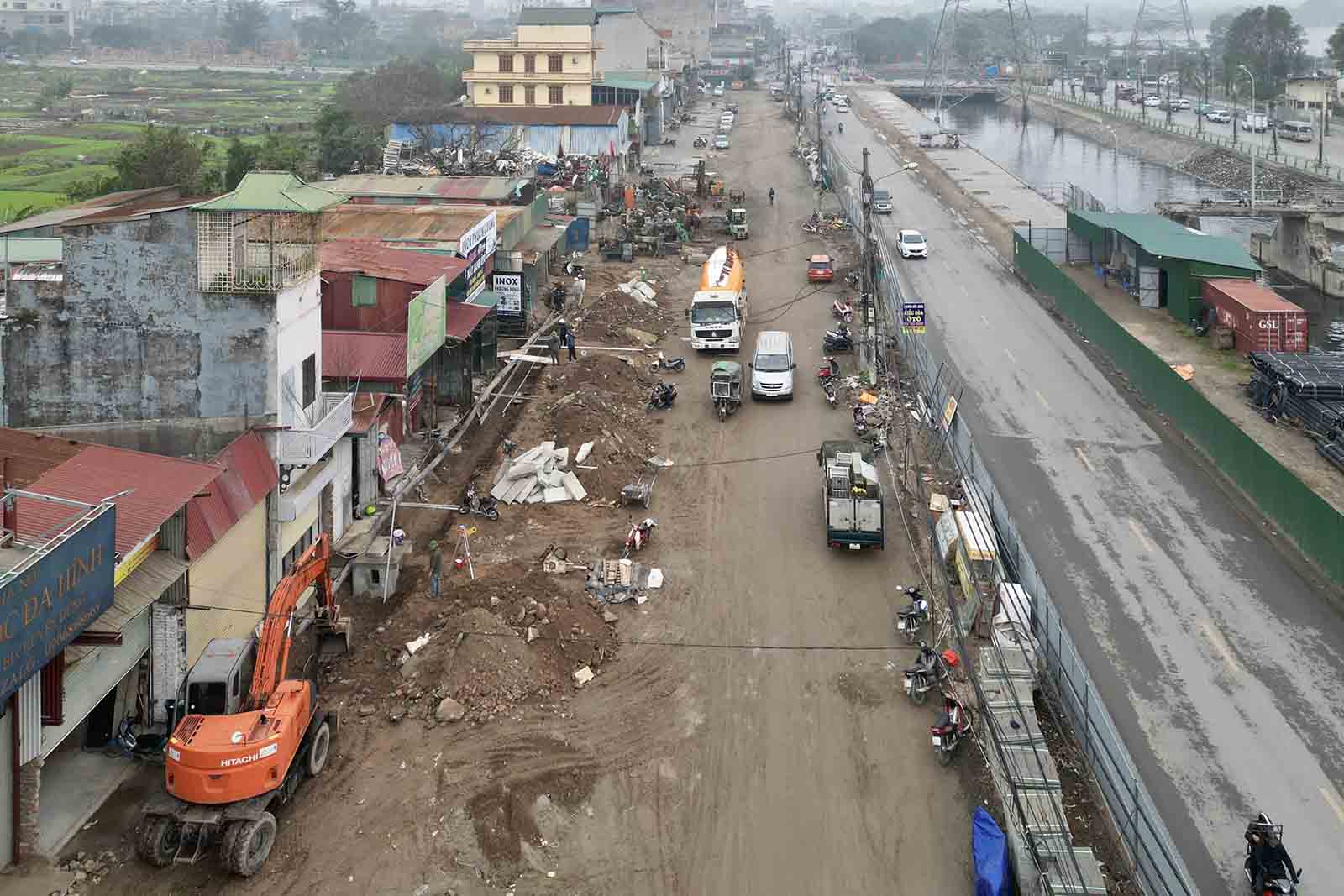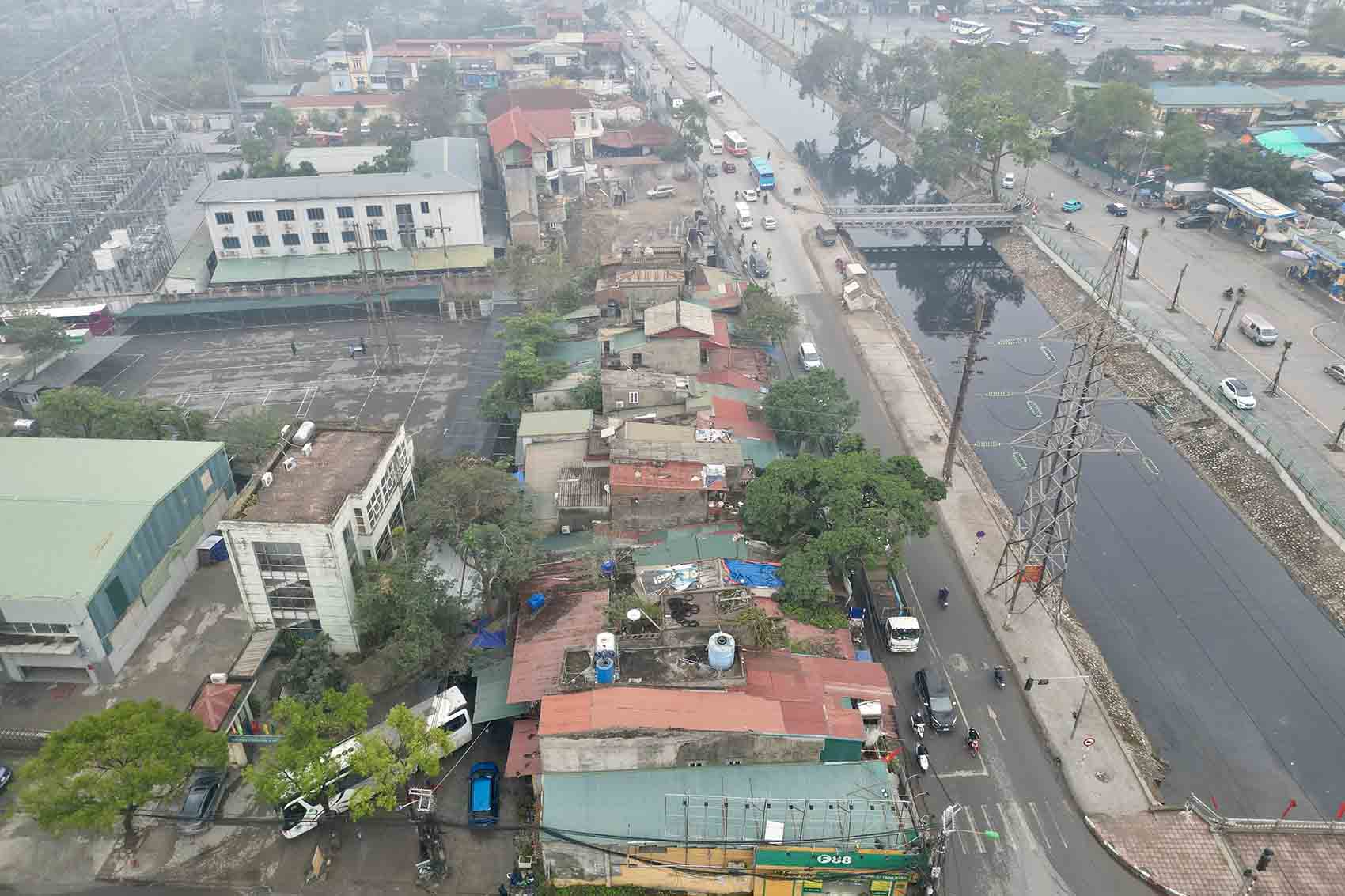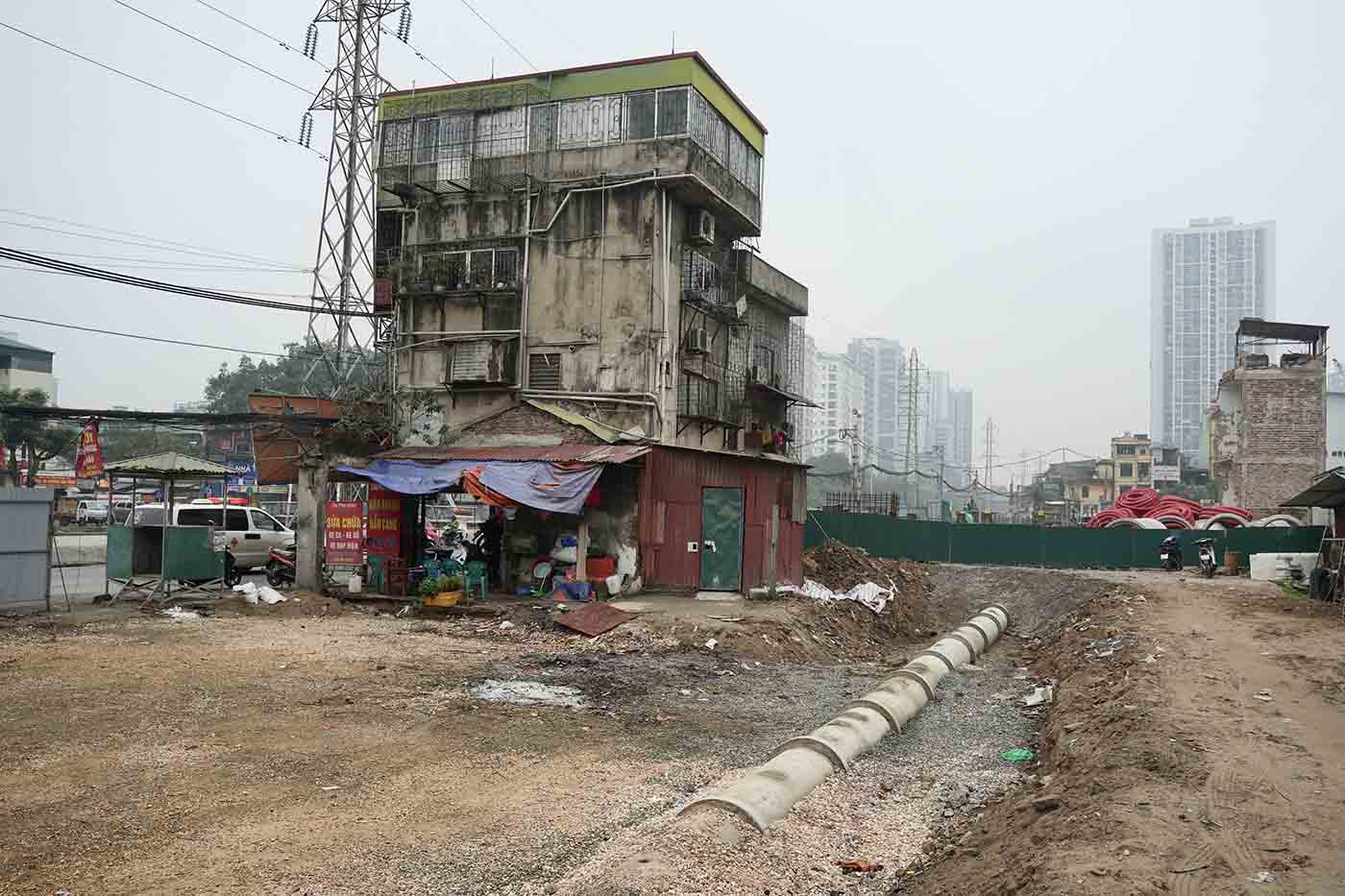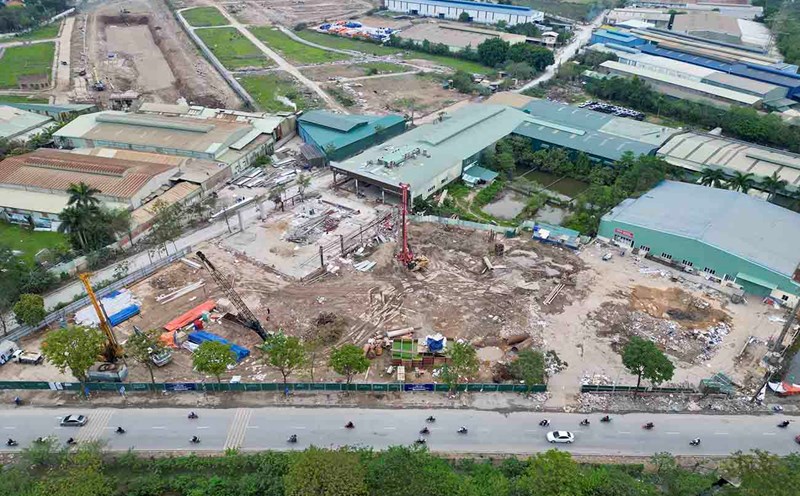The project to expand Tam Trinh Street (Hoang Mai District, Hanoi) with a length of 3.5km started in 2016, expected to be completed after 3 years. However, due to many difficulties in site clearance (GPMB), the project was stalled.
By July 2024, Hoang Mai district handed over about 800m of clean land to the contractor to implement the project. However, the allocated site was not seamless, causing many difficulties for the project implementation process.

According to the People's Committee of Hoang Mai District, to implement the project, the locality must reclaim over 54,000 m2 (after adjusting the boundary), involving about 1,590 households and 20 organizations in the three wards of Mai Dong, Hoang Van Thu and Yen So.
Up to now, the site clearance work has not been completed because the locality still faces some difficulties and problems that need to be resolved.
The Standing Committee of Hoang Mai District Party Committee has decided to postpone the handover deadline for the Tam Trinh road project by 30 days, ending before April 30, 2025.
Thus, the site clearance work of this project has changed the completion time frame four times: September 30, 2024; December 31, 2024; March 31, 2025 and now April 30, 2025.

To speed up the progress of the site clearance for the Tam Trinh road expansion project, the Hanoi Department of Natural Resources and Environment (now the Department of Agriculture and Environment) has proposed that the City People's Committee consider and approve another support plan according to the proposal of the Hoang Mai District People's Committee for households subject to land acquisition.
Regarding resettlement support for people, the People's Committee of Hoang Mai district proposed a period of support for renting houses from the time the households handed over the site to the date of completion of the repair and handover of the houses to the households.
The People's Committee of Hoang Mai District proposed that the city approve other support levels for 30 households that have approved the plan, drawn lots for apartments and households preparing for approval, and drawn lots for resettlement houses at the same level (equivalent to the temporary housing support level prescribed in Article 17 of Decision 56/2024 of the city).
With this proposal, after consulting with departments and branches, the Department of Agriculture and Environment proposed that the City People's Committee assign the Hoang Mai District People's Committee to coordinate with the Department of Construction to review and report to the City People's Committee for consideration and permission to change the resettlement housing fund to arrange resettlement for households before making and approving the plan and reclaiming land according to regulations.
While waiting for resettlement arrangements, Hoang Mai District People's Committee will provide temporary housing support according to the provisions of Article 17 of Decision No. 56/2024/QD-UBND.

Regarding the property compensation support policy, the People's Committee of Hoang Mai district said that the project has 786 households subject to land acquisition. Of which, 381 households with illegal housing and assets attached to land have had their compensation, support and resettlement plans approved under Decision No. 10.2017; and 405 households using land have not yet approved their compensation, support and resettlement plans.
The People's Committee of Hoang Mai District proposes that the city consider the level of support for cases that are not eligible for compensation for construction works and houses.
In case the provisions of the 2024 Land Law are more beneficial to people whose land is recovered, it is allowed to adjust the plan according to the 2024 Land Law.
After consulting with departments and branches, the Department of Agriculture and Environment proposed that the City People's Committee approve other support policies as proposed by the Hoang Mai District People's Committee.
At the same time, the People's Committee of Hoang Mai District was assigned to review the time of announcing land recovery for cases where compensation, support and resettlement plans have not been approved; approve other support plans for cases that do not meet the conditions for compensation for works and housing for households (not yet approved) similar to other previous support policies.











